John Pickard: Chamber Music Volume Two
Reviews of music by the English composer John Pickard (b. 1963) have stated that 'he has the technique and the temperament to emerge as one of the great symphonists of the 21st century', even that 'his place among the greats is secure'. The earliest and most recent of his five string quartets — neither previously recorded — date from two decades apart but show the same masterly control of counterpoint and an overarching sense of harmonic direction. The First (1991) is cast in a huge single paragraph, 38 minutes in length, unfolding with the drama and pace of an adventure novel; the five-movement Fifth (2012-13) explores a dialectic of conflict and resolution.
Brodowski Quartet, string quartet
Listen To This Recording:
-
String Quartet No. 1 (1991)
- ♩ = 48 –
- ‘unison melody’ 1 –
- Prelude –
- Fugue I –
- Fugue II –
- ‘unison melody’ 2 –
- Meditation –
- Prestissimo –
- ‘climax’
- Coda
- I Inquieto
- II Desolato
- III Prestissimo e leggiero –
- IV Drammatico
- V Molto energico
String Quartet No. 5 (2012–13)
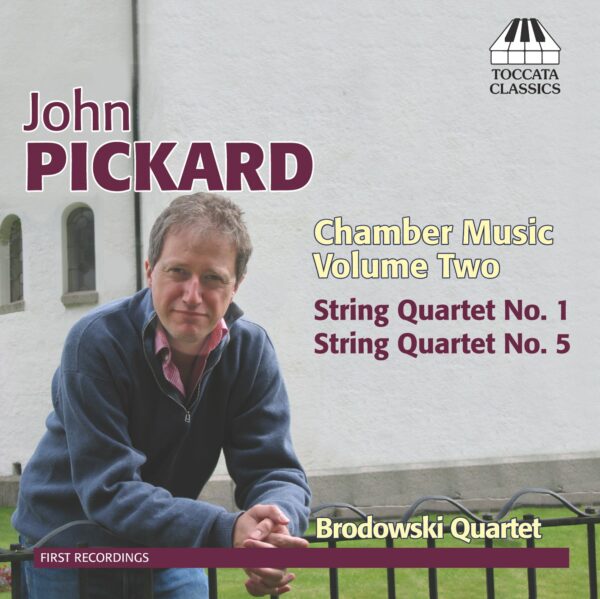
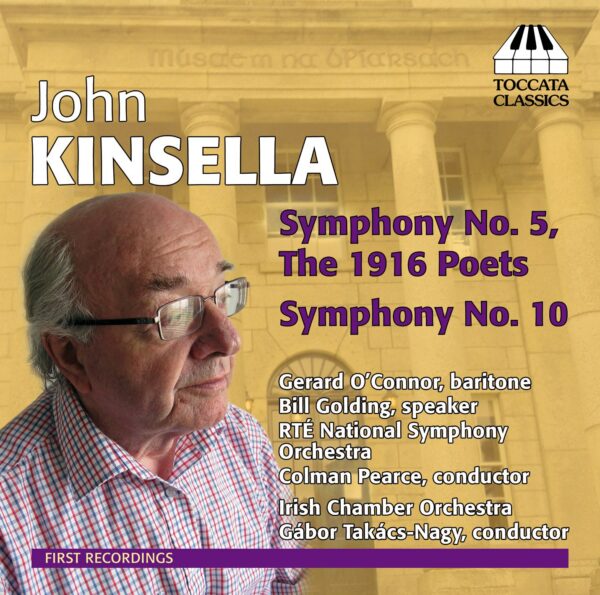
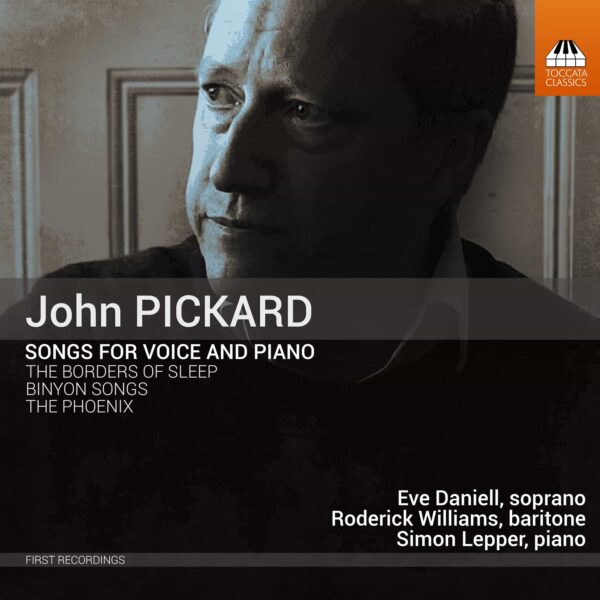
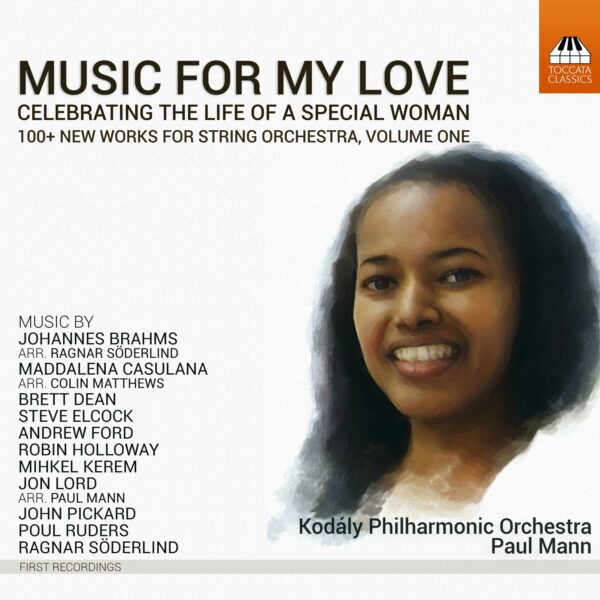
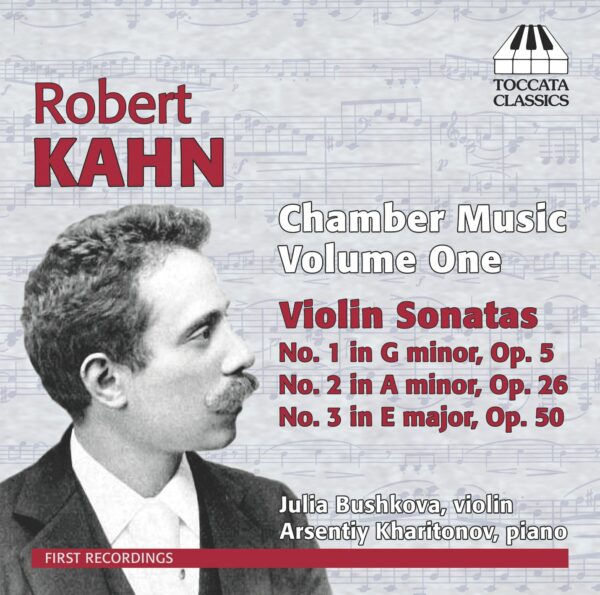
The Guardian :
‘Though the language is utterly different – Pickard’s writing always retains a firm grip on tonality – the scale and ambition of the music of the First brings Elliott Carter’s First Quartet to mind, especially in the sense of its being a work that had to be written before its composer could move forward …the First, superbly played by the Brodowski Quartet, is very well worth investigating.’
—Andrew Clements, The Guardian
Classical Lost and Found :
‘Pickard…writes tonal contemporary music with solid links to the past. What’s more there’s a sincerity, drive and structural rigor that make it intellectually challenging while at the same time immediately appealing. …The members of the London-based Brodowski Quartet give stirring accounts of both works. Their technical mastery tempered with careful attention to the rhythmic and melodic intricacies of these scores make a strong case for them. …Contemporary chamber music enthusiasts as well as audiophiles liking wetter sonics should give this disc a spin.’
—Bob McQuiston, Classical Lost and Found
MusicWeb International :
‘Pickard’s quartets are played with tremendous insight and rhythmic charge. The music’s many challenges are characterised with great insight. The composer’s presence at the recording sessions must have acted as in invaluable spur to further precision and understanding. …Admirers of Pickard, and of the contemporary string quartet, should acquire this disc without delay.’
—Jonathan Woolf, MusicWeb International
Fanfare Magazine :
‘…Here is the second volume, which effectively acts as confirmation of Pickard as a composer of original voice and deft compositional technique. There is a Bergian combination of lyricism and angst that underlies much of the writing of the String Quartet No. 1… yet the impression is simultaneously that of a folkloric longing of a lost past. …The Brodowski Quartet (2008 winners of the Royal Overseas League Competition) plays with huge conviction and massive technical security. …[String Quartet No. 5] the impression is of a new concise way of expression. …The heaviness of the emotion is palpable, especially in as heartfelt a performance as this one. It is easy to get dragged in, not to notice how exquisitely the textures are balanced, or how sweetly the phrases are tapered. Pickard’s Fifth Quartet is a magnificent creation, perfectly proportioned, almost classically so, and yet containing a wealth of feeling.
…Volume Two of Pickard’s chamber music is in every way as impressive as Volume One—perhaps more so.’
—Colin Clarke, Fanfare Magazine
American Record Guide :
‘…I’ll say this much: you can’t just plop down and put this music on. You don’t listen to it; you invest in it. Pickard doesn’t write abrasively, but his generally thick and often unvaried textures can be a challenge. He takes the homogenous sound of the string quartet further than most composers, but when he finally does use pizzicato, it’s breathtaking in its suddenness and brevity.’
—Stephen Estep, American Record Guide
American Record Guide :
‘…[Piano Sonata:] it’s a strong, well-made showpiece with cascading, propulsive allegros surrounding two idiosyncratic slow movements, the first an atmospheric nocturne that builds a long, gravel-treading melodic line into a climactic restatement introduced by a halo of arpeggios, the second a quiet, involute canon that becomes encrusted with vehement, fastsnapping ornaments before spinning up into a boldly vaulting fugue to bring this initially introverted andante to a stirring conclusion. There’s not a wasted note in this sonata, and though concise it feels “big” both in sound and scale, encompassing considerable substance and variety. Of the shorter works some are lively trifles, though even these display Center’s penchant for tangy bitonal harmonies. Many of the slower numbers are wistful and some quite beautiful. ‘Columbine’, from the 5-minute triptych Pantomine, and ‘Larghetto’, a 3-minute singleton, are lovely miniature dream-visions. This is one of those collections where each time one listens to it, one finds more to like. And with 28 tracks, there’s a lot to like here.’
—Mark L Lehman, American Record Guide
Gramophone :
‘…Dating from 1991 and acknowledged by its creator as a key work in his early development, the former is a 38-minute canvas of vaulting ambition cast in 10 interlinked sections, admirably uncompromising and imbued with a probing sense of intrepid exploration, yet always enviably sure in its progress and full of the most absorbing dialogue between the four voices. If anything, the five-movement Fifth Quartet (completed 22 years later) proves an even more idiomatically assured and engrossing achievement, the harmonic idiom now rather less astringent but with ideas that are more sharply individual. Above all, Pickard’s masterly writing evinces an entrancing wholeness, keen proportion and profoundly humane spirit that nourish both head and heart. Any listener familiar with the quartets of, say, Britten, Simpson, McCabe or David Matthews should waste no time in making this marvellous work’s acquaintance. The Brodowski Quartet lend this enormously rewarding repertoire thrillingly persuasive, spellbindingly eloquent advocacy, and their sterling efforts have been most naturally captured by Michael Ponder’s microphones.’
—Andrew Achenbach, Gramophone